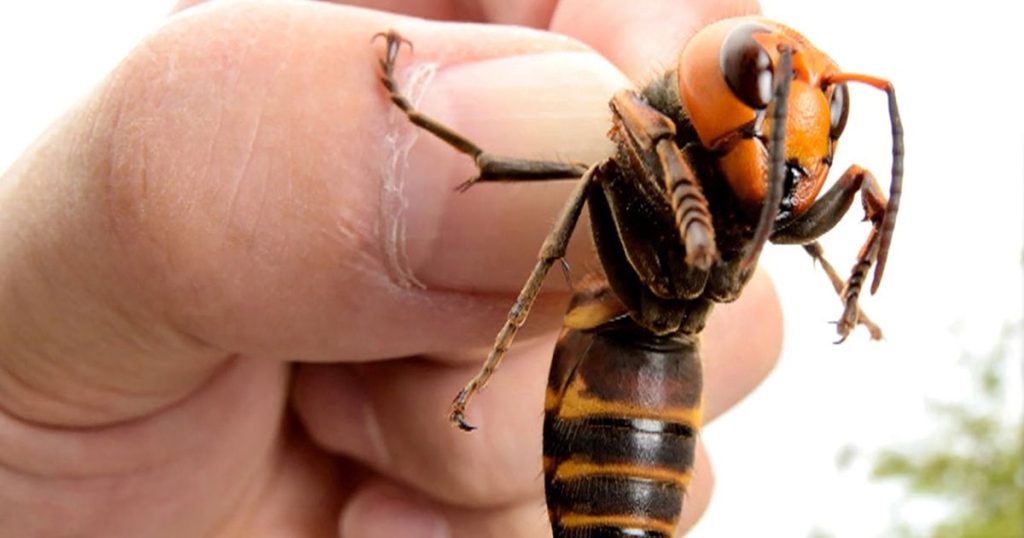Members of the public are being urged to report any sightings of the Asian Hornet, an invasive non-native species that poses a threat to honey bees and insect pollinators in the UK. The species has been causing concern due to its damaging impact on local ecosystems, and the increased number of sightings last year has raised alarms. The UK’s chief plant health officer, Nicola Spence, is calling for vigilance from both beekeepers and the wider public to prevent the establishment of the hornet in the UK. While Asian hornets do not pose a direct risk to human health, they can have devastating effects on native species, prompting the need for early trapping and eradication efforts.
As environmental conditions become more volatile due to factors like flooding and warming temperatures, the risk of invasive non-native species becoming problematic is on the rise. Nature organizations are warning of the potential spread of species such as Japanese Knotweed, Giant Hogweed, and Himalayan Balsam, which can outcompete native species and cause significant ecological damage. The recent weather conditions have left local trusts struggling to control the invasive species, highlighting the need for increased government support. The coalition of nature groups is calling for funding to create a biosecurity “citizens army” to address the growing threat of invasive species and protect local ecosystems.
The Wildlife and Countryside Link (WCL) has identified several invasive species currently posing a threat in the UK, including the Red Imported Fire Ant, Chinese Mitten Crab, and Chinese Mystery Snail. These species are gradually spreading across Europe, creating challenges for local conservation groups in controlling their populations. The coalition is advocating for increased government investment in invasive species control and a comprehensive strategy to tackle the growing problem. Recommendations include tripling the annual invasive species biosecurity budget, establishing a dedicated invasive species Inspectorate, and long-term funding for Local Action Groups to address the issue.
Members of the public can report sightings of the Asian Hornet using the Asian Hornet Watch App, which provides a tool for monitoring and tracking the spread of the invasive species. By reporting sightings promptly, individuals can contribute to early trapping efforts and help prevent the establishment of the hornet in the UK. The coalition of nature organizations is emphasizing the importance of citizen engagement in combating invasive species and protecting local biodiversity. By raising awareness and encouraging public participation, the groups aim to create a more resilient ecosystem that can withstand the threats posed by non-native species and environmental changes.
As the threat of invasive species continues to grow, experts are calling for urgent government action to address the issue. The River Trust, Plantlife, and Buglife are among the organizations in the coalition advocating for increased resources and support to combat invasive species effectively. By investing in a fully-funded inspectorate and a strong invasive species strategy, the government can play a crucial role in preserving biodiversity and protecting local ecosystems. The recommendations put forth by the coalition aim to halt the decline of nature and create a sustainable environment that is resilient to the challenges posed by invasive species and changing environmental conditions.
In conclusion, the increasing spread of invasive species like the Asian Hornet poses a significant threat to biodiversity and ecosystem health in the UK. By reporting sightings, engaging in monitoring efforts, and advocating for government action, members of the public can play a crucial role in addressing the issue. The call for increased funding, resources, and long-term strategies to combat invasive species reflects the urgency of the situation. With coordinated efforts from government, nature organizations, and citizens, it is possible to protect local ecosystems, mitigate the impact of non-native species, and create a more sustainable environment for future generations.


